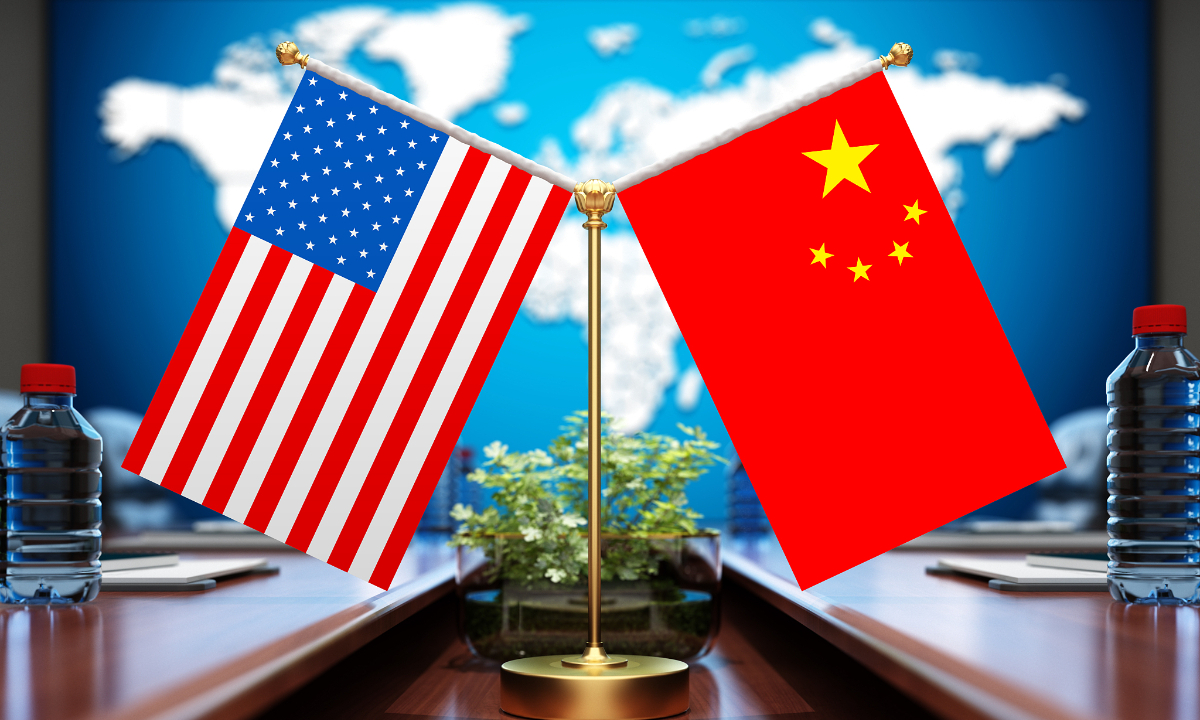
China US Photo:VCG
China on Tuesday stepped up its pushback against accusations of "overcapacity" brought up by US Treasury Secretary Janet Yellen during her trip to China, saying that politicizing production capacity and other economic and trade issues is counterproductive to global economic development.
The remarks by a spokesperson for the Chinese Foreign Ministry represented the latest pushback against the issue that becomes a focus of Yellen's trip, which was described as productive but also left mixed reactions in China.
Chinese experts hailed the trip as another positive signal for China-US efforts to stabilize ties, but questioned whether Washington will stop its protectionism under the guise of national security concerns.
Mao Ning, a spokesperson for the Chinese Foreign Ministry, said that judging whether there is "overcapacity" should be based on global market demand and future development potential, and the solution to these problems mainly depends on the market adjusting itself according to the law of value.
"Over-politicizing and overstretching the concept of national security in economic and trade issues such as production capacity go against economic laws and are not conducive to domestic industries and the stable development of the world economy," Mao said.
Prior to Mao's comments, various Chinese officials also responded to the accusation of "overcapacity." Liao Min, a vice minister of finance, refuted the accusation and said that China firmly opposes overstretching the concept of national security and intensifying green protectionism in some developed economies.
"This would seriously infringe on the legitimate development rights and interests of Chinese enterprises, and the Chinese side will not sit idly by," Liao said at a press briefing on the talks during Yellen's trip. He described the talks as being "in-depth, candid, pragmatic and constructive."
Among the consensus reached during the talks was an agreement to hold in-depth discussion on balancing the growth of the two countries.
Yellen, for her part, described her trip, the second since July, as being productive. "After wrapping up my meetings, I capped off a productive trip with a visit to the Imperial College, and a microbrewery in Beijing that imports American hops for their beers - a small representation of how the [US]-China bilateral economic relationship can benefit both sides," she wrote on X, formerly known as Twitter, on Tuesday.
During the trip, Yellen repeatedly said that the US does not seek to "decouple" from China, a statement that has been made publicly by many top US officials, including President Joe Biden. However, during the trip, Yellen's accusation of overcapacity drew widespread attention, along with her dining choices.
"Yellen's trip is a continuation of the trend of high-level exchanges between China and the US after the leaders' summit in San Francisco. It also reflects the overall willingness of the two countries to strengthen cooperation and reduce friction in bilateral ties," Xin Qiang, a deputy director of the Center for American Studies at Fudan University, told the Global Times on Tuesday.
As for the real effect of Yellen's trip on China-US economic and trade ties, it will depend on the US' sincerity and concrete actions in following up on the consensus, which remains to be seen, according Xin.
The accusation of "overcapacity" shows the long-standing US approach of blaming China for its own domestic problems and then taking protectionist actions against China under the guise of protecting US industries or national security, experts noted.
In the case of electric vehicles, "the US itself has lagged behind in EV development and has no competitive advantage, so it wants to suppress and smear China's EV industry," Gao Lingyun, an expert at the Chinese Academy of Social Sciences who closely follows China-US trade issues, told the Global Times on Tuesday.
Gao also said that while the exchanges are a crucial part of efforts to stabilize bilateral ties, the track record of the US in backing out on its promises raises serious questions about the effect of the trip.




